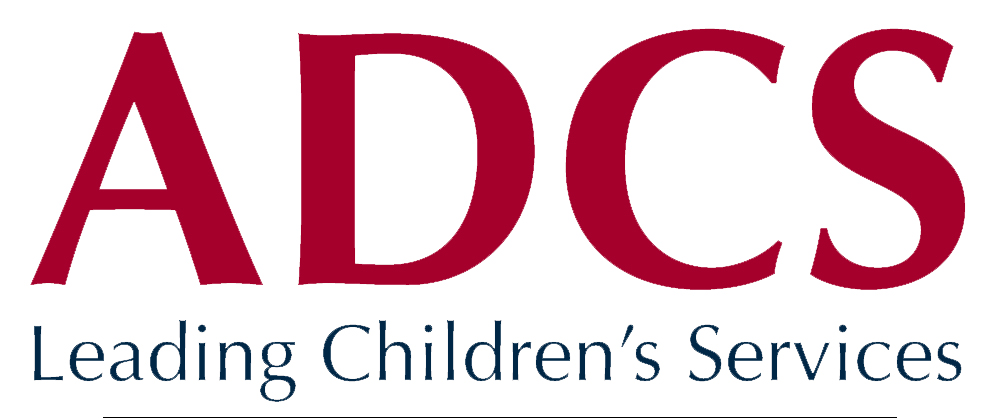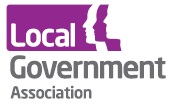This guidance is intended to provide a reference for local authorities to use in order to apply statutory duties and powers in relation to safeguarding the welfare of children in households where the parents have no recourse to public funds (NRPF) and require accommodation and/or financial assistance. Such assistance can only be provided to families under section 17 of the Children Act 1989, where there is a child in need.
When assessing the needs of a child, practitioners must refer to and follow the Department for Education’s statutory guidance, Working together to safeguard children.
This practice guidance addresses the additional considerations that need to be made when determining whether assistance under section 17 can be provided to a NRPF family, as the parent’s immigration status will affect what support options may be available:
- Parents with NRPF cannot access welfare benefits, homelessness assistance, social housing and, in some cases, employment.
- Exclusions to section 17 support apply to some parents, which mean that the local authority may only provide accommodation and financial support to such families when this is necessary to prevent a breach of the family’s human rights or EU treaty rights, usually when there is a legal or practical reason why the family cannot return to the parent’s country of origin.
Assistance provided by local authorities under section 17 has been recognised by the government and courts as being an essential safety net to protect the most vulnerable people from destitution. It is therefore necessary for thorough assessments to be undertaken so that support is provided to eligible families, and that proactive steps are taken to resolve supported cases.
As well as this guidance, we have developed a web tool in partnership with COMPAS (University of Oxford) and Soapbox, which will help practitioners find out what considerations need to be made when a family requests support under section 17 by answering questions about the parent’s immigration status. We recommend that the tool is used in conjunction with this guidance, and the information provided will link out to relevant sections of this guidance:
Social care is a devolved power and the Children Act 1989 applies to England only, although the equivalent legislation in Wales, Scotland and Northern Ireland contains similar responsibilities to safeguard the welfare of children. The immigration legislation referred to applies to the UK so local authorities nationally may find this guidance useful in helping establish how to implement the exclusions and manage NRPF cases.
For information specific to Wales, please see the Welsh Refugee Council’s briefing:
1.1 Upcoming legislative changes
The Immigration Act 2016 contains significant changes to the type of support that local authorities may provide to certain families with NRPF and to Home Office support for refused asylum seeking families.
A present the local authority support changes have been legislated to apply in England only and the asylum support changes will apply UK-wide. However, neither are currently in force and the government has not provided any indication about when they will be implemented.
Local authorities therefore must comply with the law that applies now and which is set out in this guidance. Updates about any legislative changes will be provided on our website.
For more information, see our factsheet:
1.2 Who has NRPF?
No recourse to public funds (NRPF) applies to people who are ‘subject to immigration control’ and as a result of this have no entitlement to certain welfare benefits, homelessness assistance and an allocation of social housing through the council register.
The definition of ‘subject to immigration control’ is set out in section 115 (9) of the Immigration and Asylum Act 1999 and applies to people with the immigration status types specified in the table below.
| A non EEA national who.. | Examples |
|---|---|
| Requires leave to enter or remain in the UK but does not have it |
|
| Has leave to enter or remain in the UK which is subject to a condition that they have no recourse to public funds (NRPF) |
|
| Has leave to enter or remain in the UK that is subject to a maintenance undertaking |
|
People with the following types of immigration status will have recourse to public funds:
- Indefinite leave to enter or remain, or no time limit (apart from adult dependent relative – see note B)
- Right of abode
- Exempt from immigration control
- Refugee status
- Humanitarian protection
- Discretionary leave to remain, for example:
- Leave granted to a person who has received a conclusive grounds decision that they are a victim of trafficking or modern slavery
- Destitution domestic violence concession
- Limited leave to remain granted under family and private life rules where the person is accepted by the Home Office as being destitute – see note A
- UASC leave
Notes
A. People with leave to remain granted under the family and private life rules, or outside of the rules, who are on a 10- year settlement route will have the NRPF condition imposed unless they can demonstrate to the Home Office that they are destitute, in which case, recourse to public funds will be granted. They may also apply for their leave to be varied by applying to the Home Office for a change of conditions in order for the NRPF condition to be removed.
B. An adult dependent relative of a British citizen or person with settled status will have indefinite leave to enter or remain in the UK with a prohibition on claiming public funds for a period of five years, although they may apply for non-means tested benefits during this period. Once five years has passed, or if the person who made the undertaking has died, they will have full recourse to public funds.
When a person has leave to remain with NRPF, ‘no public funds’ will be written on their immigration document.
If there is no such statement then it can be assumed that a person does have recourse to public funds, although they would need to satisfy the relevant benefit or housing eligibility requirements in order to access these.
European Economic Area (EEA) nationals and their non-EEA family members (who are lawfully present by having a right to reside or derivative right to reside in the UK) are not ‘subject to immigration control’ under section 115 of the Immigration and Asylum Act 1999. They are not excluded from claiming benefits and housing assistance. However, where they are ineligible for these because they fail the right to reside and/or habitual residence tests, they are often referred to as having NRPF. Immigration documentation issued to non-EEA family members with a right to reside or derivative right to reside will not make any reference to public funds.
For more information, see sections:
1.3 What are ‘public funds’?
Section 115 of the Immigration and Asylum Act 1999 and paragraph 6 of the Immigration Rules specify the welfare benefits that a person who is subject to immigration control will be excluded from claiming:
- Attendance allowance
- Carer’s allowance
- Child benefit
- Child tax credit
- Council tax benefit
- Council tax reduction
- Disability living allowance
- Discretionary support/ welfare payment made by a local authority
- Domestic rate relief (Northern Ireland)
- Housing benefit
- Income-based jobseeker’s allowance
- Income-related employment & support allowance
- Income support
- Personal independence payment
- Severe disablement allowance
- Social fund payment: budgeting loan, sure start maternity grant, funeral payment,cold weather payment and winter fuel payment
- State pension credit
- Universal credit
- Working tax credit
Section 118 of the Immigration and Asylum Act 1999 excludes a person subject to immigration control from being entitled to access an allocation of social housing through the council register and homelessness assistance.
There are several exceptions to the rules regarding public funds, which mean that a person who has leave to remain with NRPF may be able to claim certain benefits without this affecting their immigration status when they:
- are a national of a country that has a reciprocal arrangement with the UK;
- have an EEA national family member, including a British citizen;
- make a joint claim for tax credits with a partner who has recourse to public funds; or
- have indefinite leave to enter/remain as an adult dependent relative during the first five years they are in the UK (during which time they can claim non-means tested benefits).
There are many publicly funded services that are not classed as public funds under section 115 of the Immigration and Asylum Act 1999. Therefore, a person with NRPF may be able to access such services when the relevant eligibility criteria are satisfied, although these may include requirements relating to nationality or immigration status.
Assistance provided under social services legislation is not a public fund for immigration purposes but some groups of people with NRPF will only be able to get certain types of assistance if this is necessary to prevent a breach of their human rights or EU treaty rights.
For more information, see sections:
1.4 Good practice points
Local authorities need to adopt a consistent, lawful and efficient response when assisting families with NRPF. The following good practice points have been established through our work over the last decade with partner authorities and agencies:
-
A specialist and targeted response is required to administer services effectively; ensure there is an identified lead person or team to deal with NRPF cases.
-
Establishing internal protocols and having regard for the legislation and case law referenced in this guidance will help ensure that NRPF cases are identified at point of referral and dealt with consistently.
- Provide an interpreter if this is required.
- Families should not be refused assistance solely because they have NRPF (because this in itself does not exclude them from social services assistance), or because the local authority does not receive funding from central government to provide support to NRPF families.
- The requirement to undertake a child in need assessment is based on an appearance of need and is not dependent on the parent’s immigration status or whether the parent has a pending immigration application. The absence of a pending immigration application should not prevent an assessment being carried out or interim support being provided when this is necessary. The parent’s immigration status and whether any applications have been made will be relevant factors when determining whether the exclusions to support apply.
- Section 17 of the Children Act 1989 requires local authorities to assist the family as a whole; offering to accommodate the child alone or taking the child into care will rarely be an appropriate response in the absence of any safeguarding concerns in addition to the risk to the child arising from the parent’s lack of housing and income.
-
Obtain immigration status information and monitor caseloads and expenditure using NRPF Connect, which will also inform the Home Office of local authority involvement in case. This information contributes to the only national data source on NRPF service provision.
-
When support is provided, this should be reviewed regularly and steps taken to resolve the case; this may involve monitoring the progress of the parent’s immigration case by using NRPF Connect and working in partnership with the Home Office.
- Inform the family how and why information about them may be shared with other parties, and confirm this by written agreements signed by the lead applicant. Permission will be required in order to share or obtain information from legal representatives and voluntary sector agencies.
This guidance is structured according to the two stages that a local authority will usually follow to establish whether it has a duty to provide support to a family with NRPF:
- Pre-assessment screening: establishing the facts of the case prior to assessment.
- Assessing need: determining eligibility for the provision of services.
For more information, see sections:

